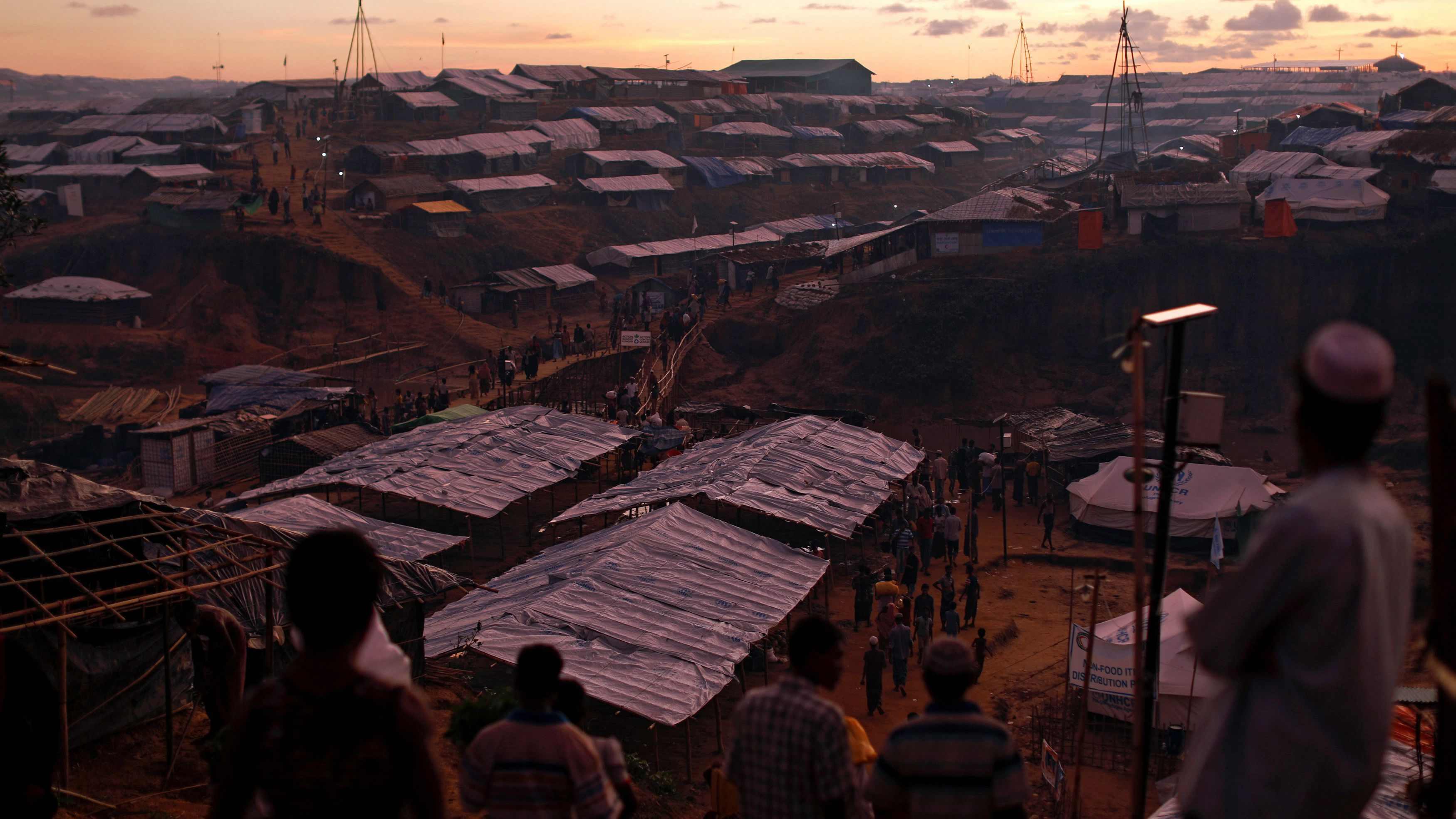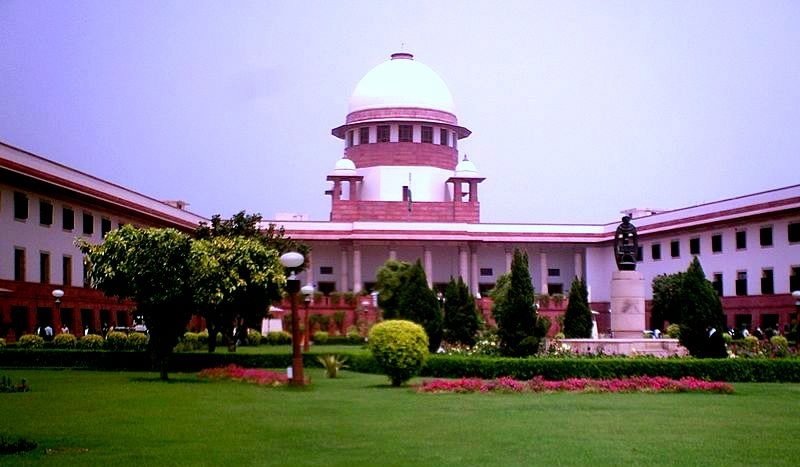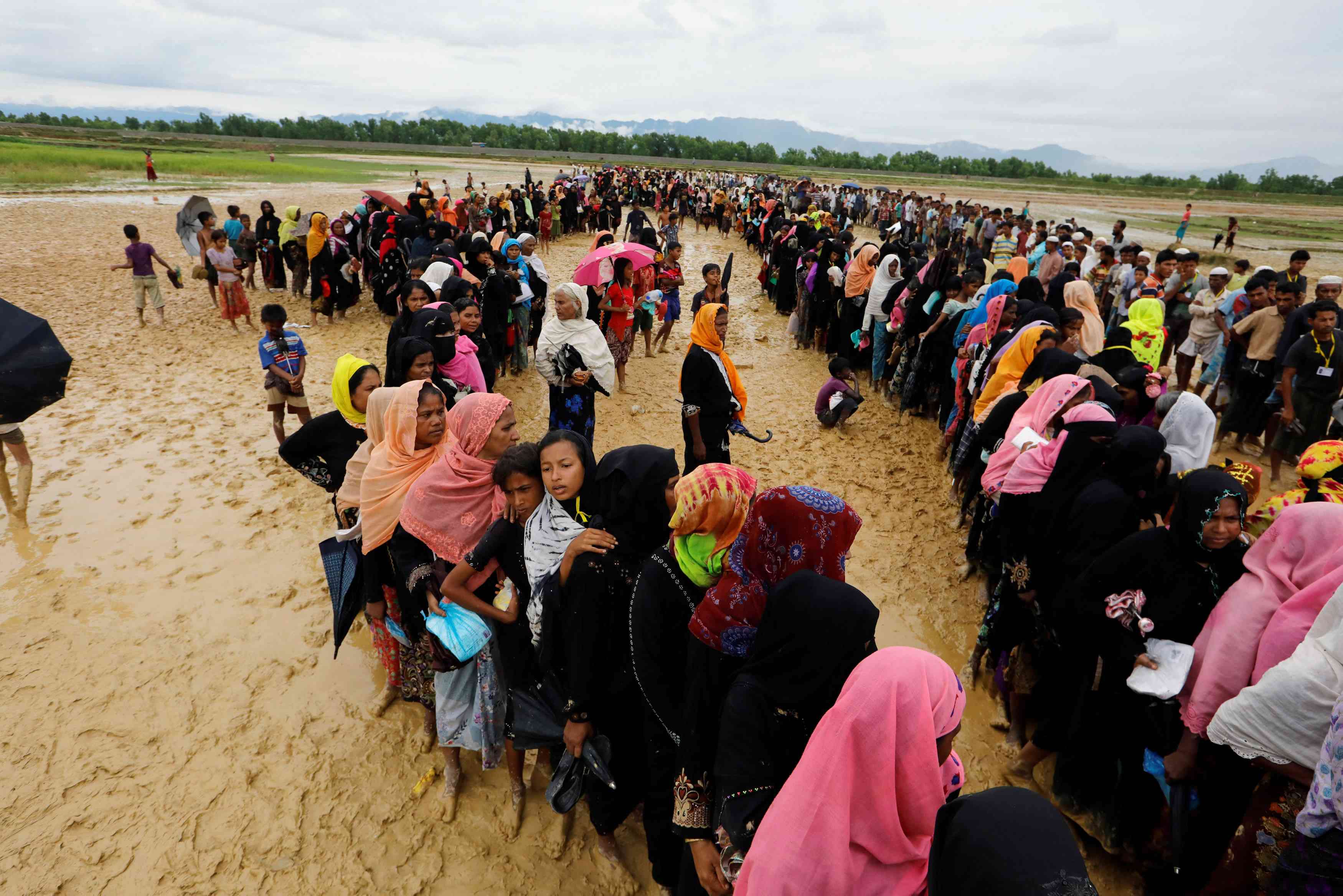
World
17:17, 14-Oct-2017
India to deport Rohingyas despite apex court's observation
Alok Gupta

India’s highest court, the Supreme Court, observed on Friday that there is a need to "strike a right balance" between the national security threat posed by the influx of Rohingya refugees and their humanitarian crisis.
The court is hearing a petition filed by activists and non-profit groups to stop the Indian government from deporting Rohingya refugees.
On August 8, the union government of India had issued a circular that directed the law enforcing agencies, state governments, and intelligence agencies to identify illegal refugees, including Rohingya refugees, that have migrated to various Indian states and deport them.
The Indian government is concerned that Rohingya refugees that have fled Myanmar's Rakhine State in a large number, looking to escape violence and persecution, pose a national security threat to the country.

The Supreme Court of India building in New Delhi. /Wikipedia Photo
The Supreme Court of India building in New Delhi. /Wikipedia Photo
Petitioners on the other hand claim that all Rohingya, whether Muslim or Hindu, cannot be labeled as terrorists, and the government cannot pass a blanket order to deport them.
The court bench headed by Chief Justice Dipak Mishra observed that there is no doubt that the Rohingya crisis is a humanitarian issue, but national interest has to be kept in mind.
They also underlined that the court would refer to the letter of the law and not get swayed by the “emotional arguments" from by both sides. The court will deliver a detailed order on November 21.
Government to go ahead with deportation
Despite the court’s observation, the Union Home Ministry is planning to go ahead with the deportation plan. Officials claim that court has not issued an interim order that bars them from deporting the Rohingya.
A Home Ministry spokesperson Saturday told Indian Express: "No interim order has been granted. The Supreme Court has merely recorded the statement of the counsel for the petitioner — to the effect that in case of any contingency, he (the petitioner) can move the court for an appropriate interim order."
The spokesperson added that the apex court had not stayed the deportation of Rohingya.
Last month, while addressing the Parliament, junior interior minister Kiren Rijiju informed the Parliament that the central government had directed state authorities to identify and deport illegal immigrants, including Rohingyas, who face persecution in Buddhist-majority Myanmar.
Government and UNHCR

Rohingya refugees queue to receive food at a camp near Teknaf, Bangladesh
October 12, 2017. /REUTERS/Jorge Silva Photo
Rohingya refugees queue to receive food at a camp near Teknaf, Bangladesh October 12, 2017. /REUTERS/Jorge Silva Photo
The United Nations High Commissioner for Refugees (UNHCR) in a bid to identify genuine Rohingya refugees, had issued identity cards to more than 16,000 identity cards to the refugees, to prevent harassment, arrests, and detention by local authorities.
Peeved over the attitude of both Myanmar and India over refugee crisis, the UN High Commissioner for Human Rights had termed the Rohingya minority crisis as a "textbook example of ethnic cleansing."
Ambassador Rajiv K. Chander, the Permanent Representative of India to the United Nations had expressed disapproval to Hussein’s remarks.
According to UNHCR, there are nearly 40,000 registered and unregistered Rohingya refugees that have fled from Myanmar to India. They are living at various locations including Jammu, Nuh in Haryana’s Mewat district, Delhi, Hyderabad, Jaipur, and Chennai.
Nearly 536,000 Rohingya refugees are living in Bangladesh. Most of them risked their lives while fleeing the violence-torn Rakhine State and arrived in large numbers to various parts of the country. Relief agencies are operating nearly 12 camps for the Rohingya refugees.

SITEMAP
Copyright © 2018 CGTN. Beijing ICP prepared NO.16065310-3
Copyright © 2018 CGTN. Beijing ICP prepared NO.16065310-3